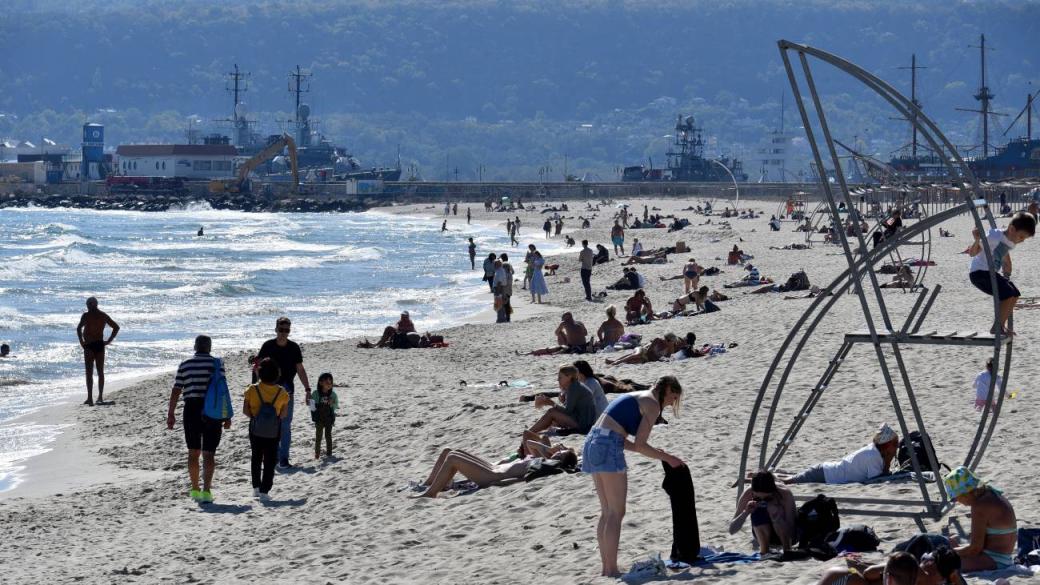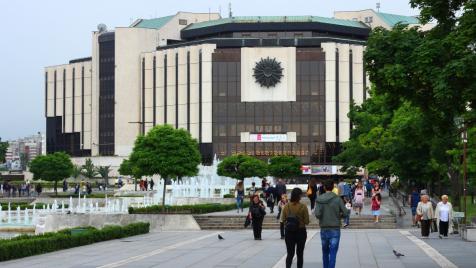The Bulgarian tourism sector has failed to learn anything from Greece
Tourism in Bulgaria is hostage to political incompetence, Polina Karastoyanova told Economic.bg

© ECONOMIC.BG / BTA
Greece - the biggest competitor of the Bulgarian tourism industry - once again demonstrated how to lead successful development in this sector. This week, the Greek Minister of Tourism presented four strategies to strengthen the integrated and sustainable development of the industry with a total budget of 387.24 million euros, financed by the National Plan for Recovery and Sustainability.
The funds will be used to promote the sustainability of destinations, differentiate and improve the competitiveness of the Greek tourism product, upgrade tourism education and training, and strengthen the promotion of Greece with a new approach and the use of new tools.
What will Greece improve?
Greece has traditionally offered an almost perfect tourist product, but now thanks to the millions of euros to flow in next year, the country stands to also modernize its port and airport infrastructure. Another important group of projects with a total public budget of 53.7 million euros is the modernization of ski resort facilities, as well as projects for 17.1 million euros to improve and change access to Greek beaches.
Tourism education will benefit from state funds to the tune of 45.2 million euros, and another 10.13 million euros will go for the digital transformation of the tourism business register. Funding is also planned for a destination management project. 10 million euros are earmarked for the digital transformation of the Hellenic National Tourism Organization.
All of this shows what professionalism, and a high political culture can do for the management of the sector", commented Polina Karastoyanova, chairperson of the Bulgarian National Board of Tourism (NBT), to Economic.bg.
How will this affect the Bulgarian tourism sector?
Bulgaria is the only European country that did not include the Tourism sector in its Recovery Plan draft thus showing no support to this national industry, which was one of the hardest hit by the COVID pandemic. In reality, one of the objectives of the European Commission's Recovery and Resilience Plan was to support the sectors most affected by the pandemic, with each member state deciding for itself which projects and industries to earmark for funding. More than once, Bulgarian tourism representatives have said that excluding the sector from the Plan would bring more problems for it in the future. But even in the amended Plan draft proposals, prepared and sent by the Bulgarian Minister of Finance Assen Vassilev, the tourism sector was not included.
We can clearly state that the current Minister of Finance, Assen Vassilev, was the one who redesigned the Bulgarian Recovery and Sustainability Plan. And what we observe - compared to Greece, Romania, Croatia and Spain - is a complete failure on his part to handle financial instruments. And what we have at the moment is the Bulgarian tourism sector hostage to this incompetence and deprived of any possibility to maintain its competitiveness", says Karastoyanova.
Can there be salvation for Bulgarian tourism?
The answer to this question is not easy and has been sought for 20 years now. The problem is that there is no clear vision for the development of the sector, and everything seems to stay mired in old-time practices. The Bulgarian tourism ministry’s budget has not changed for years, and it usually adds up to less than EUR 15 million. This amount includes everything - from covering the expenses of the civil servants to the marketing strategy that aims to position the country on the global tourism map.
Bulgarian tourism needs a radical change of attitude and a reassessment of the role that the sector plays in the national economy. It is a shame to witness how the finance minister, instead of working with these perspectives in mind, thinks how to tax the waiters’ tips. In this sense, we need a completely new management model for the tourism sector," adds the NBT chairman.
According to Karastoyanova, everything that can be done on the business side is being done, but the role of the state in fixing the situation has been more than catastrophic.
It must be clear that if the people in the National Assembly (the Bulgarian Parliament) and in the Council of Ministers do not change their attitude towards the sector, the damage that will be caused by this incompetence and misunderstanding in the next two to five years will probably be insurmountable", explains Polina Karastoyanova.
She appeals to the politicians when they discuss the state budget for 2024 next month, to reconsider their attitude towards that industry and to allocate a larger funding share to the Ministry of Tourism.
A quick check at the current version of the draft budget for 2024, uploaded to the website of the Ministry of Finance but expected to undergo changes, the tourism ministry stands to receive a little over EUR 14 million – basically the same amount it got in 2023.
The Tourism Board has more than once expressed the need for EUR 500 million to be invested directly in the business, infrastructure, and communication tools of the sector. This will lead to an upswing in the national economy," says Karastoyanova.
Translated by Tzvetozar Vincent Iolov

 Gabriela Mahlelieva
Gabriela Mahlelieva 